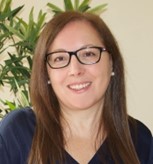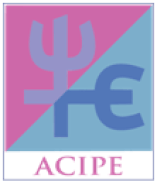
Laura Lorenzo-López
University of A Coruña, Spain
Ageing and frailty.
Participants: Laura Lorenzo-López, Pedro Miguel Gaspar, María Campos-Magdaleno, Esperanza Navarro-Pardo, David Facal
In the study of ageing, frailty is the state that increases an individual's vulnerability to developing disability and/or increasing mortality when exposed to stressors. In the context of geriatrics and biomedical sciences, the concept of frailty has been operationalised differently, the most commonly used being the frailty phenotype, characterised by the presence of three or more of the following physical criteria: weight loss, low energy, slow mobility, muscle weakness and/or low level of physical activity. However, in recent decades, different constructs have emerged to complement the traditional one of physical frailty. For example, the concept of "cognitive frailty" includes the simultaneous presence of physical frailty and mild cognitive impairment in the absence of dementia and/or disability.
As people age and become frailer, their psychological and social circumstances appear to have a more direct impact on their health. Social characteristics, especially those related to psychological well-being, have been shown to be directly related to the constructs of physical frailty and cognitive frailty. A lack of psychological and social resources may be accompanied by a loss of vitality, as well as a loss of meaning and zest for life. From this multidimensional perspective of frailty, there would not be a subordination between physical, cognitive and psychosocial areas, but rather they depend on different and interrelated developmental trajectories throughout life, depending on the circumstances of each older person.
This symposium presents the results of studies on the ageing process and frailty carried out in Porto, Santiago de Compostela and Valencia, and addresses theoretical aspects, at a conceptual level, and applied aspects, from a perspective of prevention and promotion of psychological health in old age.
PhD in Psychology from the University of Santiago de Compostela with Extraordinary Doctorate Award. Associate Professor at the Department of Physiotherapy, Medicine and Biomedical Sciences of the Faculty of Health Sciences of the University of A Coruña. Member of the Gerontology and Geriatrics Research Group (GIGG), where she leads as Principal Investigator a research project funded by the Ministry of Science and Innovation for the identification of psychophysiological and molecular/cellular markers of cognitive impairment and its relationship with the clinical syndrome of physical frailty, using non-invasive neuroimaging techniques. She has participated as a researcher in more than twenty competitive projects. Her scientific production includes the publication of 62 scientific articles indexed in ISI's Journal Citation Reports (JCR) (h-index: 21, citations: 1242), 3 books and book chapters in prestigious publishing houses, and more than 160 contributions to scientific conferences (9 by invitation). The results of his research have received several awards and recognitions, the most recent being: Dolores Trigo Award 2021, Blair-Curtius-Pfleiderer-Wachter Award 2019, and Royal Academy of Medicine and Surgery of Valladolid Award 2019. Expert evaluator for the Coordination and Evaluation Branch of the State Research Agency since 2009, in the area of Psychology, and for several international agencies for the evaluation of research projects in the area of Health.





